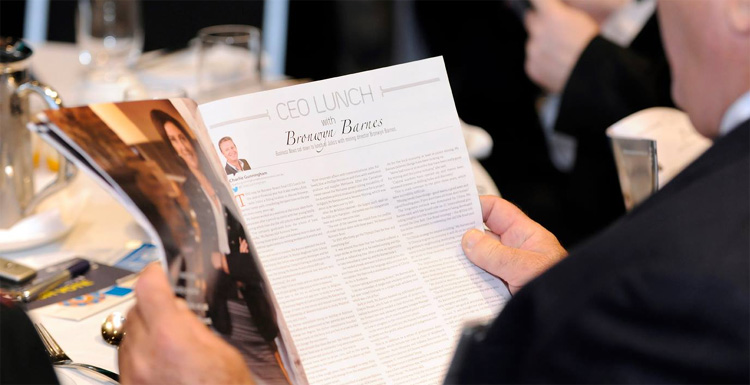
Have a look around the world at the less democratic countries, and there you will see a neutered or government-controlled press.
I was in a South-East Asian country last year on assignment, and the ruling government managed to put one of the main independent newspapers out of business declaring it had not paid its correct amount of tax. Within days, the owners had either fled the country or were in police hands. The paper was duly shut down. All staff were out of work. Within a few more weeks, the same government ruled the opposition party was illegal, and it was duly shut down. There are elections this year, it’s a slam dunk for the ruling party. It’s a sham for democracy and the people.
Having worked at a media company, I know what it is like to be inside a news operation, striving every day to ensure the correct facts are published. Readers have a right to know what is going on, which is why they are drawn to news media. Often the ‘truth’ is ambiguous, out of reach, fuzzy. It takes hard work and time to uncover it, especially when some people would prefer it left uncovered.
Opinion is cheap. Truth is expensive.
News media, run well, will hold the government and powerful of the day to account, lest they run amok. Politicians may not like the freedoms and protections of the press, the intrusions into their lives this entails, but they understand in their hearts that this is important in a democracy.
Great travesties of justice have been exposed by a free press, be it the Vietnam War (so beautifully portrayed in ‘The Post’ movie), or Catholic abuses of children (2015’s ‘Spotlight’ movie), or Watergate (‘All the Presidents’ Men’). In fact, it is interesting that these David and Goliath investigatory battles all make for dramatic movies.
In many ways, the press has it hard. Not only can information be blurry, but with the leach of classified ad income to the internet, the newspaper industry has also lost its ‘rivers of gold’ revenue. Faced with declining income, they have been forced to cut back on editorial staff, the very life blood of any upstanding news organisation. The rush to ‘click bait’ and hits has seen a rush to the bottom, allied to the polarisation of media such that viewers only switch on to – or read stuff – that affirms their preconceived ideas. The ‘truth’ is now not so important. Readership, and holding on to your readers come what may, is all that matters.
Thomas Jefferson once famously said: “Were it left to me to decide whether we should have a government without newspapers or newspapers without a government, I should not hesitate a moment to prefer the latter.”
Or, as the supreme court famously ruled on the Pentagon Papers case, “The press is to serve the governed, not the governors.”
No wonder dictactors and coup leaders take over the TV and news organisations first. Putin has Russia Today, and Trump has Fox News. Anything else, is fake news.
With a weakened press (around the world), the splintering of media and consumers just seeking what they want to hear, media is in about as weak position as it as ever been.
In order to grab attention, media organisations scream sensationalist headlines in order to cut through the noise. The rush to publish, by less trained and lower paid juniors, means the ‘lie is half way around the world before the truth has got its pants on‘ (as Winston Churchill once opined).
As one Congressman said a few years ago, “You are welcome to your own opinion, but you are not welcome to your own facts.”
Facts are facts. Proven. Scientific. Sourced. Part of history. Full stop.
People are switching off ‘The News’ as it’s always about bombs and deaths and disasters (fear). Fear sells. But it also puts the audience off, who want to be informed without being alarmed all the time.
In many ways, our world is safer than ever. There are less wars, less deaths, less die from disease and hunger, yet you would not know this from the TV news.
Something has to be done to save media (real media, one that seeks truth and holds truth to power) before it goes down the gurgler forever. For that’s where it’s heading. Slowly, but surely, the news industry is dying. Journalist jobs are disappearing, and once gone, are not coming back. It’s a race to extinction in ever decreasing circles.
One ray of hope is in the recent example the New York Times. Harangued by the US President (as the ‘failing NY Times’), the paper has actually put on an extra million paying subscribers over the past year. They now have more than 3.5M, that’s double the number of just 2 years ago. Thank goodness too, as their print ad revenue continues to decline.
What’s happened here is interesting, for the more the President rails against the ‘fake news’ media organisations it does not like, the more people flock to them and support and pay for the very same mastheads. The more the President is seen to be telling untruths (over 2000 in this first year alone, reportedly), the more people want to know the truth from a reputable source.
Asking people to PAY for news is incredibly brave, as there are thousands of web sites out there that give away news for free. So to see the NY Times do so spectacularly well behind a paywall is encouraging not only for their future, but also for the future of the medium overall.
I worked for a news organisation that made the bold step to put up a paywall way back in 2002, and erect an even stricter one in 2013. The result? Traffic to the site ROSE five-fold over the past 4 years and subscription income became the largest single revenue source (larger than advertising or events). So it can be done.
I would therefore argue that a free press is essential in a democracy (the so-called ‘Fourth Estate’), and that the only way to ensure its survival is to create content that readers value and pay for. In this way democracy flourishes. For without an informed public, how are we going to know who to elect? The US are discovering this the hard way right now it would seem…



I agree. Also in freemiums there is always a (hidden) cost. It’s better to pay consciously for what we really want.